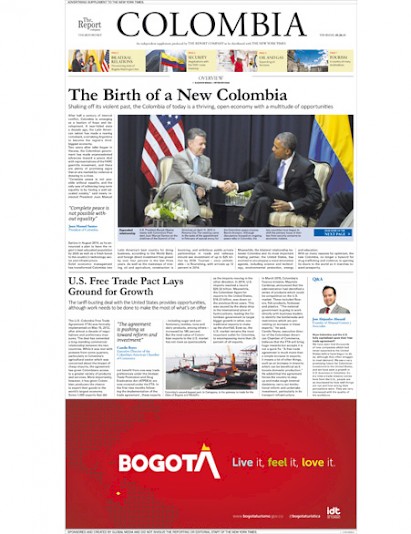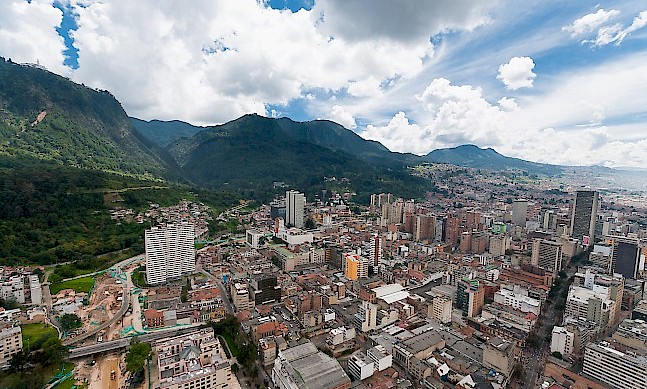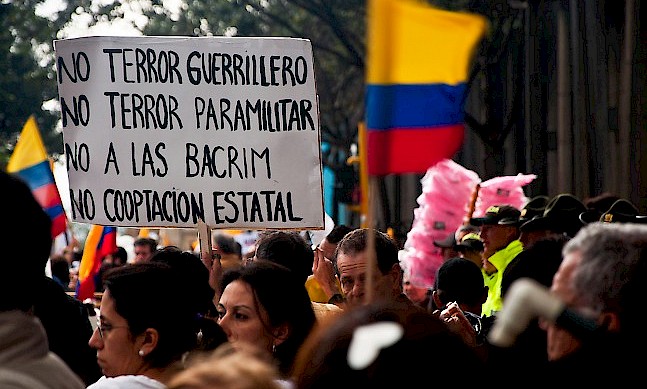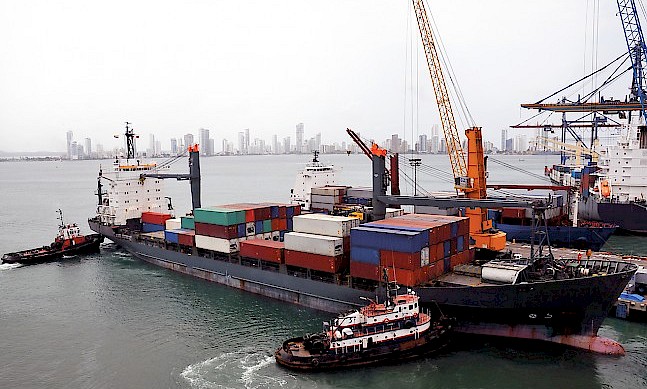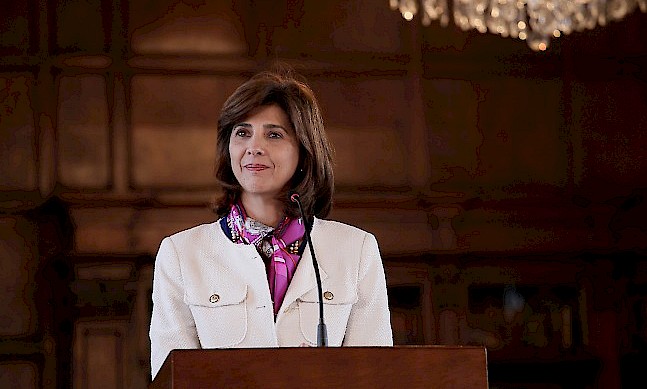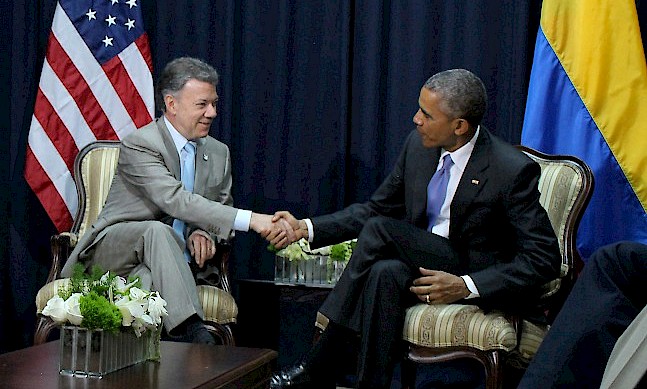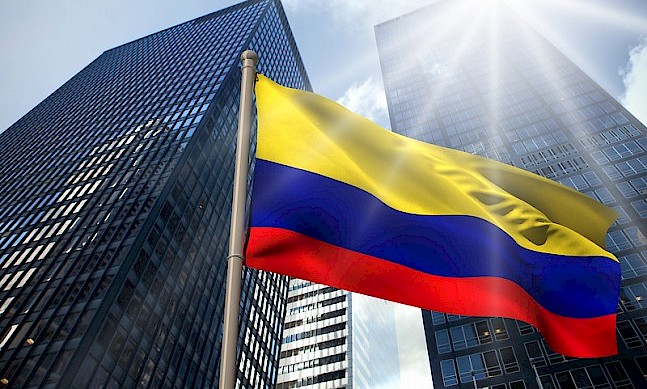Colombian Foreign Minister Maria Angela Holguín talks to The Report Company about Colombia’s evolution from nearly failed state to beacon of hope, and outlines the country’s current diplomatic priorities.
The Report Company: Can you give us an overview of SmartCity’s strategy and what has changed since it was founded in 2007?
Anthony Tabone: SmartCity Malta is a joint venture between the Republic of Malta and SmartCity Dubai, which internationally develops and manages a global network of self-sustained business parks dedicated to the knowledge-driven industries. While each SmartCity operates as its own community, townships around the world have an excellent relationship as they function as a global network. Igniting connections and promoting growth, this network allows for the creation of new jobs for knowledge workers, establishes a multinational foothold for knowledge businesses and opens exciting new markets where companies can expand.
Whereas before SmartCity Malta was primarily managed from Dubai, it is now also being managed from Malta. Localised management has been helping SmartCity Malta to change the way in which it develops its core services. Besides continuing to strive to attract foreign direct investment to the project, SmartCity Malta has been endeavouring to integrate itself within the Maltese community and uphold its corporate social responsibility values. In fact, in 2012 and 2013 SmartCity Malta hosted part of L-Istrina, the largest philanthropic event on the island. As well as being a great outreach opportunity to individuals in the Maltese community, L-Istrina at SmartCity Malta was an enjoyable event for the whole family.
TRC: What are the main priorities for SmartCity Malta and the key challenges and objectives?
AT: Phase one of SmartCity Malta was inaugurated in 2010 with its first ready-to-operate, state-of-the-art office space building, SCM01, providing 12,000m2 of office space, with intelligent infrastructure serving as the first milestone for the creation of the vibrant ICT and media hub into which Ricasoli will be transformed. This spring, we will officially inaugurate the Laguna Walk, the island’s only lagoon district. Together with four more buildings, this will constitute phase two of the SmartCity Malta project. Two of these buildings, SCM02 and SCM03, will be office blocks and the other two, SCM04 and SCM05 will be devoted to food and beverage outlets. The Laguna Walk will invigorate the hub of SmartCity Malta and transform the project into a centre for socialising while capturing the essence of its location.
A total of €76 million has been invested to date for the development of SmartCity Malta, out of which €30 million has been invested in the leisure and entertainment areas that will be open for everybody to enjoy. Therefore, one of the objectives is to encourage people to visit the Laguna Walk and attend events which will be held in the area. Moreover, SmartCity Malta aims to become the leading hub for knowledge-based clusters, create jobs in the knowledge sector for the people of Malta, as well as attract foreign direct investment to the knowledge sectors, thereby making a significant contribution towards increasing the share of knowledge industries towards Malta’s GDP.
TRC: What types of investors and companies is SmartCity Malta looking to attract?
AT: SmartCity Dubai develops and manages business townships that host knowledge-based companies worldwide. Therefore, SmartCity Malta’s primary objective is of creating a real knowledge hub where local and international education and training organisations, research institutions, recruiting and other HR consultancies, will operate in synergy with the core knowledge-based businesses, thereby creating a whole network of opportunities.
TRC: What sectors are you focussing on?
AT: The business tenants who have set up office at SmartCity Malta operate in several varied sectors ranging from finance, research and development, food and beverage, gaming, higher education and learning, electronics, to back-office operations. However, since SmartCity Malta focuses on developing a state-of-the-art international work-play-live business park for knowledge-based companies, we aim to attract further partners in this field. Over the past few years, knowledge-driven economies have grown exponentially around the world. They continue to fuel the future of countless companies and many countries. SmartCity Malta is designed to act as a knowledge-based cluster for all information and communication technology and media companies on the island.
TRC: What makes SmartCity Malta attractive for potential investors?
AT: SmartCity Malta aims to attract foreign companies to the island and it rises to this challenge by providing fantastic infrastructure for companies that have already decided on Malta as a destination for investment. Business partners at SmartCity Malta also benefit from the expertise and resources in business clusters in Dubai, including Dubai Internet City and Dubai Media City. By means of clustering, companies and educational institutions are able to closely and systematically collaborate between themselves, together with related research organisations. SmartCity Malta empowers businesses with reliable state-of-the-art ICT and social infrastructure, a host of IT, media and production services and partnership opportunities across all SmartCity sites.
TRC: SmartCity Malta also plans to be a meeting point for tourists and locals. What is being done in order to promote this?
AT: An exciting leisure offering will be available at SmartCity Malta this spring, bringing this new business community to life, with lush seaside, and food and beverage outlets located in Malta’s first lagoon district. Skirting the expansive lagoon, the Laguna Walk will evoke for all visitors a great ‘outdoors’ feeling, that is endemic to the Maltese islands and takes full advantage of its climate. It will be the ideal location for leisurely walks or fitness activities, and will provide a natural walkway through SmartCity Malta’s leisure district. A truly enthralling focal point, epitomising the innovation of this dynamic and fun-loving city, the magnificent Laguna Walk will surely draw visitors from all over the islands, and further afield.
“Colombia is an emerging economy, and a very dynamic and successful one. Now, our focus involves implementing policies to create a more equal, a more educated and more prosperous society.”Post This
TRC: What is SmartCity Malta’s current occupancy rate, and what is being done to attract major clients?
AT: Since 2012, SmartCity Malta has signed with a number of business partners, and SmartCity Malta’s occupancy rate currently stands at 60 percent. Some of the tenants who have been announced publicly include Cisco and HP. We will be announcing details on others jointly with our partners in the future, when they open their doors for business at SmartCity Malta. We are also in talks with other potential business partners, whereby we highlight the excellent value proposition of the project. SmartCity Malta is equally compelling for both local and international knowledge-based companies.
TRC: What impact do you see SmartCity Malta having on the island’s economy?
AT: SmartCity Malta is designed as the most advanced ICT infrastructure available in Malta. Through a progressive integration of technology and services, SmartCity Malta has developed an ICT Infrastructure to meet the technical demands of mission-critical digital operations. Such ICT infrastructure concept, forming the blueprint of all current and future SmartCities, incorporates five crucial elements, namely a built-in core telecom IP network, a multi-homed fibre network to doorstep, the most secure power supply in Malta, a unified central campus and building management, and on-site technical support. Such infrastructure is able to excellently cater for Malta's knowledge-based sectors, such as financial services, business process outsourcing, digital gaming, digital media and so on, which depend on a robust ICT infrastructure to operate for an international clientele from Malta. The very nature of the project allows such sectors, and hence, the Maltese economy to flourish. The investment made into SmartCity Malta is spurred from the vision of making it the latest destination on the Maltese islands. The project’s offering continues to become even more comprehensive, providing corporate identity and huge networking potential.
TRC: How would you like SmartCity Malta to be perceived on an international level, and particularly within the Chinese market?
AT: SmartCity Malta is next in line to join the largest networked business spaces in the world. This global network creates opportunities, leveraging over 4,500 knowledge-based companies, opportunities to extend presence within the network, smooth relocation from one SmartCity to another, networking and partnership opportunities throughout the network, access to different markets and talent pools, and sharing of global best practices. Furthermore, being as it is strategically located at the heart of the Mediterranean, Malta is a gateway to the EU, North Africa and the Middle East, and boasts a host of economic and social advantages. Such benefits include low cost benefits, competitive tax and government incentives, a robust and growing economy, excellent track record in the services industry, a highly educated and motivated English-speaking workforce, as well as a warm Mediterranean weather and lifestyle.


 Photo: Ministry of Foreign Affairs
Photo: Ministry of Foreign Affairs
